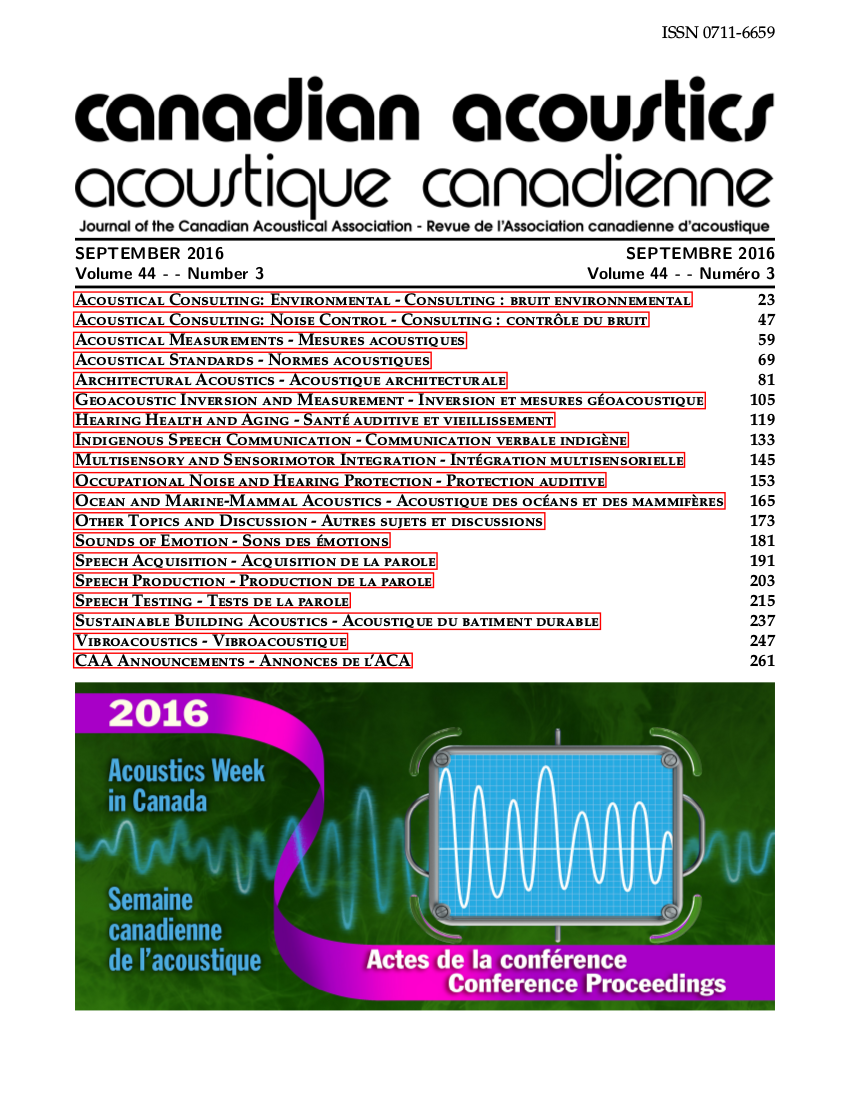Effects of modality and linguistic materials on memory
Abstract
Audiologists can test memory with auditory or visual stimuli. Visual tests are immune to hearing loss; auditory tests are ecologically relevant. In a previous study, an auditory test was preferred to a visual test, because it yielded a greater range of working memory scores; however, the linguistic properties of the materials were not matched across tests. In the current study, we compared auditory and visual tests with matched word-level and sentence-level materials. Thirty-two young adults with normal hearing completed four tests (2 modalities x 2 linguistic levels). The order of conditions was counter-balanced. In each test, 100 items were presented, with 5 trials in each of setsizes (2, 3, 4, 5, 6). The number of words correctly recognized, judged and recalled was measured. Recall decreased with increasing setsize. There were significant main effects on recall of modality (auditory > visual) and linguistic-level (word > sentence), and interactions with setsize.
Additional Files
Published
How to Cite
Issue
Section
License
Author Licensing Addendum
This Licensing Addendum ("Addendum") is entered into between the undersigned Author(s) and Canadian Acoustics journal published by the Canadian Acoustical Association (hereinafter referred to as the "Publisher"). The Author(s) and the Publisher agree as follows:
-
Retained Rights: The Author(s) retain(s) the following rights:
- The right to reproduce, distribute, and publicly display the Work on the Author's personal website or the website of the Author's institution.
- The right to use the Work in the Author's teaching activities and presentations.
- The right to include the Work in a compilation for the Author's personal use, not for sale.
-
Grant of License: The Author(s) grant(s) to the Publisher a worldwide exclusive license to publish, reproduce, distribute, and display the Work in Canadian Acoustics and any other formats and media deemed appropriate by the Publisher.
-
Attribution: The Publisher agrees to include proper attribution to the Author(s) in all publications and reproductions of the Work.
-
No Conflict: This Addendum is intended to be in harmony with, and not in conflict with, the terms and conditions of the original agreement entered into between the Author(s) and the Publisher.
-
Copyright Clause: Copyright on articles is held by the Author(s). The corresponding Author has the right to grant on behalf of all Authors and does grant on behalf of all Authors, a worldwide exclusive license to the Publisher and its licensees in perpetuity, in all forms, formats, and media (whether known now or created in the future), including but not limited to the rights to publish, reproduce, distribute, display, store, translate, create adaptations, reprints, include within collections, and create summaries, extracts, and/or abstracts of the Contribution.


